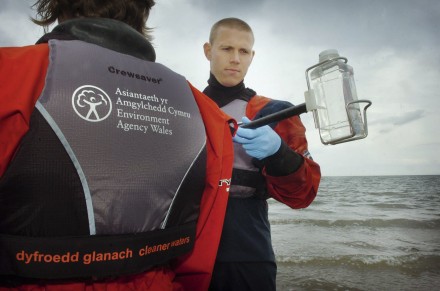 According to research by the Institute of Environmental Management and Assessment (IEMA), environmental practitioners with a combination of environmental, management and leadership skills are driving cost savings and delivering environmental improvements for business.
According to research by the Institute of Environmental Management and Assessment (IEMA), environmental practitioners with a combination of environmental, management and leadership skills are driving cost savings and delivering environmental improvements for business.
Employing practitioners with the right environmental skills, knowledge and expertise means UK businesses could save up to £55 billion a year through energy and resource efficiency savings.
“The latest survey of our members shows that environmental practitioner roles are on the move, providing new and exciting career opportunities. People entering and progressing through the profession are bringing a wide range of management and leadership skills to complement their sound environmental knowledge. It is these environmental practitioners who are uniquely positioned to identify opportunities to add value, drive cost savings, and, ultimately, deliver change,” said Claire Lea, IEMA’s Director of Membership Services.
According to IEMA’s June 2011 survey, moving into an environmental practitioner role is becoming a desirable career change of choice with 88% of people surveyed experiencing high levels of satisfaction after making the change. Nearly 45% of people asked had made the career change because they wanted to either make an environmental difference or said they have a personal and positive interest in the environment. A further 20% reported that ‘the environment became vital to the development of an existing role’. As a result people are changing jobs from a multitude of sectors and roles, and bringing a range of valuable business skills and experience.
Overall the profession has high standards of environmental knowledge – more than four out of five respondents have a bachelor’s degree or higher qualification – and increasingly they are working at all levels within organisations from delivering operational environmental improvements through to influencing strategy at Director level.
In response to rising demand for skilled environmental practitioners IEMA has mapped out the environmental skills and knowledge across all levels of experience and responsibility in organisations. IEMA’s “Environmental Skills Map – a framework of knowledge and skills for the environmental practitioner” for the first time defines the career path for an environmental practitioner, and the competencies required to deliver sound business strategies that have environment at the heart of decision-making and deliver business benefits. The “Environmental Skills Map” will provide environmental practitioners, business, recruiters and training providers with structure and clarity.
“As a member of IEMA I have supported the evolution of this framework and I can see the benefits it will bring to corporates.” said Ian Hill of Openreach. “In my own experience, working at Openreach (a BT Group business), a combination of financial, operational and sustainability skills has, I believe, helped me be more effective as an environmental practitioner.”
Andrew Tew, Consultant at environmental recruitment specialists Acre Resources explains: “Employers are now looking for a broader mix of skills from project management to business case development. This often needs to be partnered with a sound knowledge of environmental legislation, along with an understanding of risk and commercial opportunity. The environmental job market is proving to be relatively stable during this economically challenging time (in fact salaries have risen over the past three years) partly as a result of companies realizing that tangible commercial benefits can arise from engaging with environmentally sustainable practices and products.”





